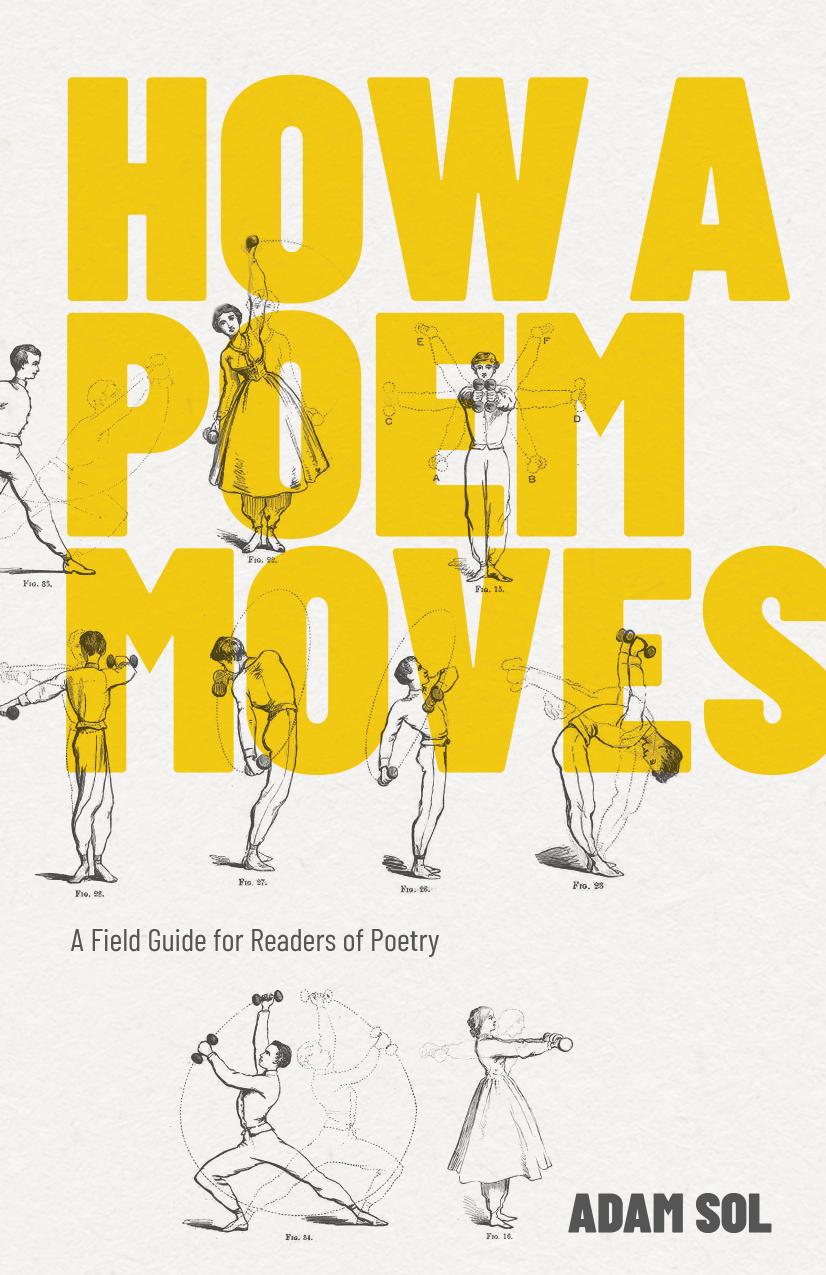How a Poem Moves: A Field Guide for Readers of Poetry by Adam Sol

Author:Adam Sol
Language: eng
Format: epub, pdf
Publisher: ECW Press
Published: 2019-03-12T00:00:00+00:00
How a Poem Doesn’t Dish
Damian Rogers, “Ode to a Rolling Blackout”
Ode to a Rolling Blackout
Teachers in Oklahoma seek to stop students
from discovering the gateway of digital drugs.
We’re all having a hard time, but some problems
are preferable to others: the problems of the very rich,
for example. Some swear the pile is the only known
enemy of the hole. O pretty girls tripping on night,
enjoy this next round, as your pupils pour out
past last call. One of you will soon stop caring
for your hair and your delicates will start to sour.
You will pick your teeth clean with your coke nail.
Now you crackle like a coal, lips slick with petroleum.
Little pots of hot pink clink like crystal as you travel
down the black tube toward morning. Did you kiss
the devil’s ass in the alley? Please, no more questions.
— from Dear Leader (Coach House Books, 2015)
I want to start my discussion about this poem by saying something about near-confession, or half-confession. If you don’t know about the so-called “Confessional” poets from the middle of the twentieth century like Robert Lowell, Sylvia Plath, John Berryman, and Anne Sexton, there’s plenty to discover. What these poets all have in common is a willingness to plumb the depths of their personal experience, even at the risk of revealing uncomfortable or embarrassing information. Lowell’s ambivalence about his family’s legacy of privilege and dysfunction, Sexton’s mixture of anger and passion about family and womanhood, Plath’s self-accusing romance with death — all of these, at the time, crossed barriers about what could or should be written about in poetry. Ultimately the most successful “confessions” expand into something wider and more essential. That’s one reason why we continue to read them.
Despite what literary scholars and theorists have been telling us for decades, it’s still a common natural impulse when reading lyric poetry to look for the poet’s authentic experience in the subject matter. Knowing that Plath, Sexton, and Berryman all committed suicide adds a certain aura of authenticity to the anguish in their poems. But are poets under any obligation to deliver this kind of confession? Can we still be moved by a powerful poem about, say, a father’s death, if a poet writes while both his parents are living? Of course. And yet, we as readers still crave to connect a poem to the poet’s biography.
But in an age when oversharing personal information is ubiquitous to our culture, then what avenue of self-exploration can still feel daring, powerful, even just resonant? If all is revealed on Instagram, then what artistic purpose could a confessional mode provide? Or, to put it in another way, how does a lyric poet respond to this new situation? How can we touch on, or gesture toward, personal experience without descending into cheap diaristic navel-gazing?
One strategy that Damian Rogers uses in this poem, and one that I see a lot of elsewhere (including in my own work, I admit), is a coyness about how much of a dark truth is truly personal. We aren’t sure how many of
Download
How a Poem Moves: A Field Guide for Readers of Poetry by Adam Sol.pdf
This site does not store any files on its server. We only index and link to content provided by other sites. Please contact the content providers to delete copyright contents if any and email us, we'll remove relevant links or contents immediately.
| Ancient, Classical & Medieval | Anthologies |
| British & Irish | Japanese & Haiku |
| Love Poems | Regional & Cultural |
| Themes & Styles | United States |
| Women Authors |
The Universe of Us by Lang Leav(15065)
The Sun and Her Flowers by Rupi Kaur(14508)
Adultolescence by Gabbie Hanna(8911)
Whiskey Words & a Shovel II by r.h. Sin(8006)
Love Her Wild by Atticus(7745)
Smoke & Mirrors by Michael Faudet(6182)
Wiseguy by Nicholas Pileggi(5766)
The Princess Saves Herself in This One by Amanda Lovelace(4964)
Love & Misadventure by Lang Leav(4841)
Memories by Lang Leav(4794)
Milk and Honey by Rupi Kaur(4739)
Bluets by Maggie Nelson(4542)
Too Much and Not the Mood by Durga Chew-Bose(4334)
Pillow Thoughts by Courtney Peppernell(4271)
Good morning to Goodnight by Eleni Kaur(4226)
The Poetry of Pablo Neruda by Pablo Neruda(4090)
Algedonic by r.h. Sin(4055)
HER II by Pierre Alex Jeanty(3604)
Stuff I've Been Feeling Lately by Alicia Cook(3448)
